Uncategorized
-
 Quantum Physics
Quantum PhysicsRumors hint that Google has accomplished quantum supremacy
Reports suggest a quantum computer has bested standard computers on one type of calculation, but practical applications are still a distant goal.
-
 Planetary Science
Planetary ScienceIndia’s first attempt to land on the moon appears to have failed
Indian scientists haven’t heard from the Vikram lander for a full lunar day, after they lost contact during the robotic spacecraft’s descent.
-
 Physics
PhysicsCO2 from champagne bottles can form shock waves like those seen in rocket exhaust
Popping a bottle of bubbly releases a plume of dry ice that bears a visible type of shock wave called a Mach disk.
-
 Physics
PhysicsCan time travel survive a theory of everything?
It’s not yet clear whether a theory that unites general relativity and quantum mechanics would permit time travel.
-
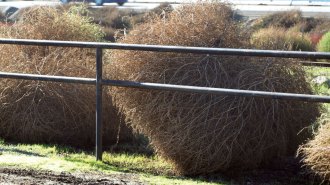 Plants
PlantsWhy tumbleweeds may be more science fiction than Old West
A tumbleweed is just a maternal plant corpse giving her living seeds a chance at a good life somewhere new.
By Susan Milius -
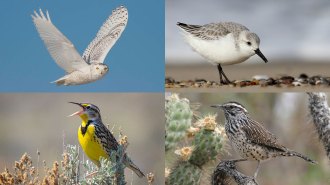 Life
LifeWe’ve lost 3 billion birds since 1970 in North America
Scientists estimated the change in total number of individual birds since 1970. They found profound losses spread among rare and common birds alike.
-
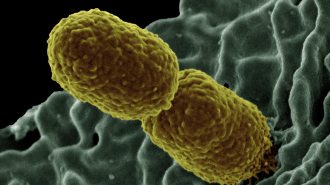 Humans
HumansAlcohol-producing bacteria could cause liver disease in some people
A majority of patients with nonalcoholic fatty liver disease also had gut bacteria churning out medium to high levels of ethanol.
-
 Humans
HumansAncient DNA reveals the first glimpse of what a Denisovan may have looked like
A controversial technique reconstructs a teenage Denisovan’s physical appearance from genetics.
By Bruce Bower -
 Health & Medicine
Health & Medicine1 in 4 U.S. high school seniors has vaped recently — up 4.5 percentage points from 2018
A 2019 survey finds the number of high school and middle school students who report using e-cigarettes recently continues to grow.
-
 Physics
PhysicsA new experiment slashes the maximum possible mass of tiny neutrinos
The KATRIN experiment suggests that the tiny subatomic particles have masses a minuscule fraction of an electron’s.
-
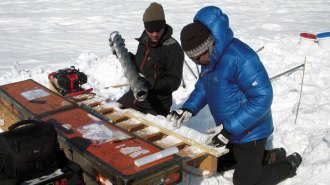 Climate
ClimateExpanding ice slabs are increasing Greenland’s contribution to sea level rise
Since 2001, melting and refreezing have created vast ice layers near the surface that could drastically amp up meltwater runoff and sea level rise.
-
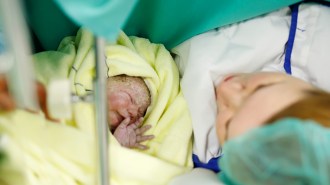 Humans
HumansBabies born by C-section have more potentially infectious bacteria in their guts
Microbial mixes in babies’ guts differ depending on birth method.